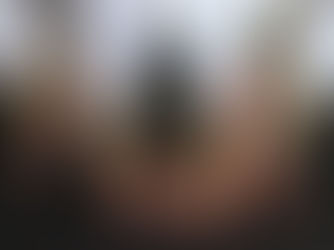
“Exercising hope requires simultaneously holding the future lightly, uncertainty is a prerequisite and investing in a better one.” Kendra Thomas

I’ve been having so many meetings where the concept of hope keeps surfacing. So I’ve been thinking about the difference between planning and hoping.
Planning is where I usually go first. It’s tidy. It gives me something to do. It feels like progress. But I’ve realised that sometimes my planning is a way to avoid sitting in the unknown. That uncomfortable place where hope lives.
When life feels reasonably stable, it’s easy to believe that planning alone will get us to whatever’s next. Planning matters. And boy do I love a good plan! But planning alone doesn’t always help us imagine something better. Sometimes it keeps us too focused on the parts we can control.
Looking beyond what we can measure
Most studies that talk about wellbeing focus on the things we can measure: income, health, work, safety. All important. But they don’t always tell the full story of what it means to live well.
That’s what drew me to the Global Flourishing Study, a long-term collaboration between researchers across the world. They wanted to go deeper. To look at meaning, purpose, relationships, and character.
Their findings were surprising but also strangely comforting. The wealthiest countries weren’t the ones where people reported the strongest sense of purpose or wellbeing. In fact, many who had less, felt more.
It made me wonder. Maybe flourishing isn’t about what we accumulate, but about how we steer into uncertainty and how we keep believing in the possibility of good.
The practice of hope
I’ve written about hope before, but lately it’s felt more urgent.
Kendra Thomas, whose work I’ve been reading, describes hope as a virtue. Something you practise. She talks about hope as a series of habits and rituals. Small, ordinary acts that point towards a future we can’t yet see.
Admiral Stockdale was a prisoner of war in Vietnam for seven-and-a-half years. He noticed that those who understood that harsh truths could coexist with hope for a better future fared better than those who did not. This became known as the Stockdale paradox.
Hope changes how we see time. It stretches beyond our to-do lists and goals. It asks us to play the long game. To trust that what we plant today might not bloom until long after we’re gone.
The gift of friction
Hope isn’t neat. Rather than being the opposite of pessimism or a cure for despair, it grows out of both.
We live in a world that keeps trying to remove friction from our lives. Click, and dinner arrives. Click again, and a book is summarised. One more click, and someone else’s voice fills the silence.
But what if hope needs friction to survive?
I keep coming back to the word attention. How it quietly hides tension within it. We pay attention when something stretches us, when it demands something of us. When tension disappears, so too does attention.
Friction is what stretches us. It’s what teaches hope. It’s what forces us to face our limits and find new ways forward. It’s what drives us to believe that tomorrow might be better than today.
The long arc of hope
Hope lives in the rebuilding.
When I listen to people talk about moments of deep hope, they often tell stories of pain, loss, failure, waiting.
That’s the paradox that keeps me curious. Hope is the quiet, steady decision to keep going, even when the story looks uncertain.
Reading the Global Flourishing Study, I realised how close hope and flourishing really are. Flourishing is the strength to live meaningfully, to care, to act, and to imagine something better. Even when we can’t see it yet.
“Hope is not blind optimism. It's not ignoring the enormity of the task ahead or the roadblocks that stand in our path. It's not sitting on the sidelines or shirking from a fight. Hope is that thing inside us that insists, despite all evidence to the contrary, that something better awaits us if we have the courage to reach for it, and to work for it, and to fight for it. Hope is the belief that destiny will not be written for us, but by us, by the men and women who are not content to settle for the world as it is, who have the courage to remake the world as it should be.” Barack Obama
This week
Identify a moment when you last felt hopeful.
Reach in: Reflect on that moment. What made it hopeful?
Reset: What might you want to rethink about hope?
Reach out: Talk about what hope means with someone you love.






